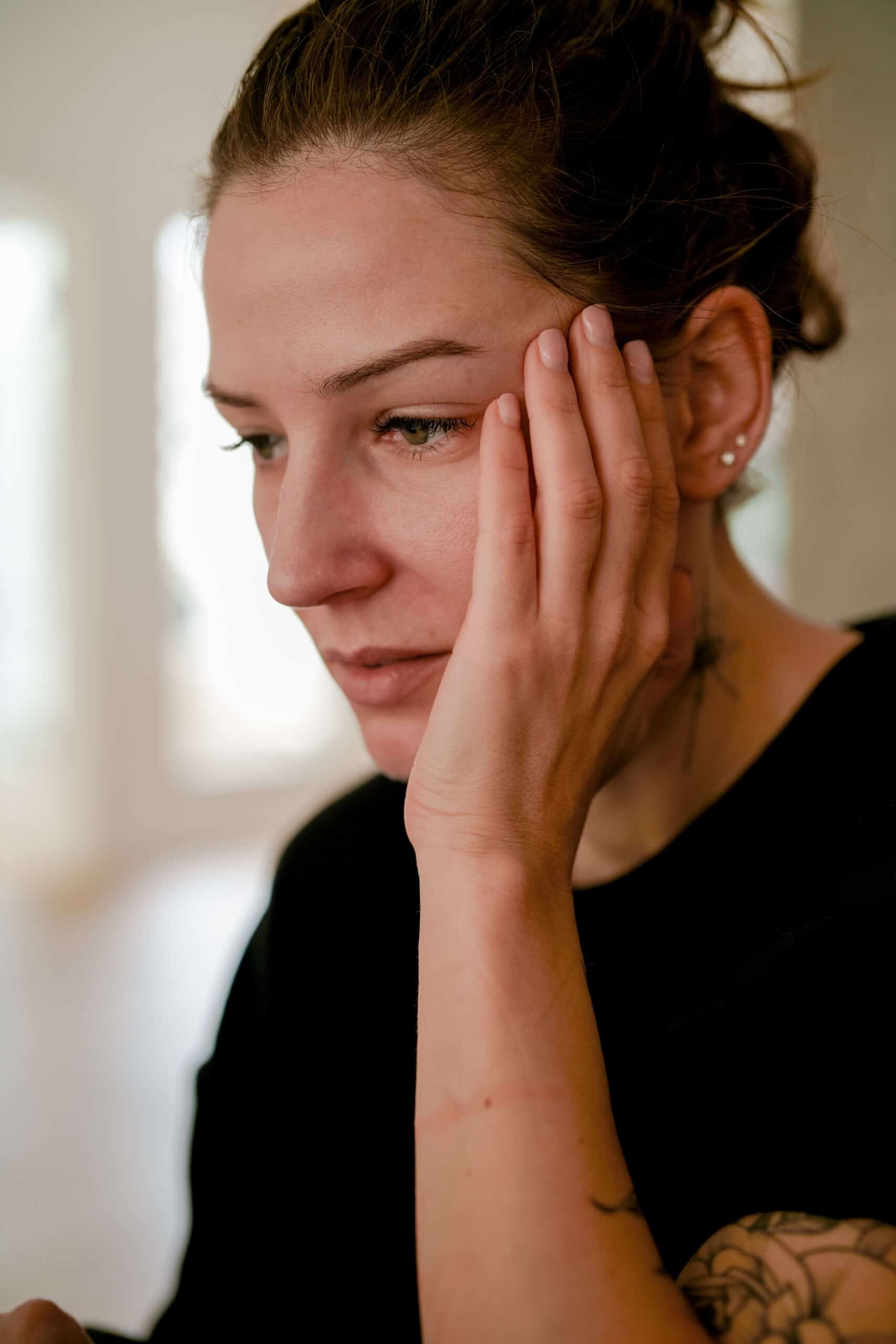Is OCD Neurodivergent?

Have you ever wondered, is OCD neurodivergent? It’s a question that brings us to the crossroads of mental illness discussions.
This article explores the connection between obsessive-compulsive disorder and neurodiversity, aiming to untangle the concepts in simpler terms.
Let’s dive in and figure out how Obsessive Compulsive Disorder fits into the broader picture of neurodivergent experiences.
OCD neurodivergent link
The correlation between OCD and neurodivergence underscores the complexity of mental health dynamics. While Obsessive-Compulsive Disorder (OCD) traditionally falls under the umbrella of mental health conditions, a pertinent query arises: Does it also align with the spectrum of neurodivergence?
Neurodivergence encompasses a spectrum of cognitive variations that deviate from conventional norms such as Autism, ADHD, Dyslexia, traumatic brain injury and PTSD.
Breaking this down in simpler terms, OCD can be seen as a unique expression within neurodivergence.
Each individual grapples with distinctive cognitive patterns, and understanding the intersection of OCD with neurodiversity is pivotal in fostering a comprehensive outlook on mental health.
Moreover, acknowledging the neurodivergent facet of OCD promotes inclusivity and challenges prevailing stigmas. It redirects our focus from pathologizing differences to appreciating the diverse cognitive processes that contribute to the richness of the human brain.
By delving into the link between OCD and neurodivergence, we strive to cultivate a professional discourse that promotes compassionate and holistic approaches to any mental health condition.
Neurodiversity and OCD
Neurodiversity in the context of OCD extends beyond a singular narrative, as the spectrum of experiences among individuals with this disorder is vast (anxiety disorder, Autism Spectrum Disorder, etc).
OCD is characterized by intrusive thoughts and repetitive behaviors, and these manifestations can vary widely among affected individuals.
Some may experience primarily obsessions, such as intrusive and distressing thoughts, while others may predominantly engage in compulsive mental rituals as a way to alleviate anxiety.
Recognizing the neurodiversity within OCD means acknowledging the unique cognitive styles (human brains), coping mechanisms, and challenges faced by individuals.
It involves challenging stereotypes and fostering an inclusive dialogue that highlights the strengths and resilience of those living with OCD.
Furthermore, embracing neurodiversity prompts a shift from viewing OCD solely as a pathology to appreciating the diversity of cognitive processes (brain regions).
This shift can contribute to reducing stigma, fostering a more supportive environment, and encouraging a nuanced understanding of mental health.
OCD in neurodivergent context

Diverse Cognitive Patterns:
OCD within the neurodivergent context unfolds through a spectrum of cognitive patterns and how the brain function.
While some grapple with intrusive thoughts, others find solace in compulsive rituals. Recognizing this diversity is crucial for tailoring support to the individual’s unique experience.
Coping Mechanisms and Adaptability:
Coping mechanisms take center stage in the lives of neurodivergent individuals with OCD. These rituals, often repetitive in nature, serve as adaptive responses to manage the anxiety stemming from obsessive thoughts.
Unpacking these coping strategies reveals the resilience and adaptability embedded in the neurodivergent journey with OCD.
Despite the richness of the neurodivergent experience with OCD, societal awareness and understanding may lag.
Navigating misconceptions and stigma becomes a part of the journey, emphasizing the importance of raising awarenesses of mental illnesses to foster a more informed and supportive environment.
Neurodivergence perspectives on OCD
Neurodivergence brings a unique lens to the understanding of OCD, opening up a space that recognizes and celebrates the diversity within the spectrum of any mental health disorder.
This perspective invites us to move beyond traditional frameworks and appreciate the richness of individual experiences with OCD.
Diversity in Cognitive Experiences:
Within the neurodivergence perspective, there’s a profound acknowledgment of the diversity in cognitive experiences associated with OCD.
Individuals with neurodivergent traits may manifest OCD in distinct ways, whether through intense obsessions, elaborate rituals, or a combination of both.
Recognizing this diversity is essential for fostering a more inclusive dialogue around mental health.
Coping Strategies as Personalized Solutions:
Neurodivergent individuals often develop personalized coping strategies that uniquely address their needs.
These strategies, whether sensory-based, routine-oriented, or creatively expressive, provide insight into the adaptive resilience within neurodivergence.
Understanding how these coping mechanisms intersect with OCD allows for a more tailored and empathetic approach to treating ocd.
Challenging Conventional Pathways:
Neurodivergence challenges conventional pathways of understanding mental illness by emphasizing that neurological differences are not inherently pathological.
In the context of OCD, this means moving away from viewing obsessions and compulsions solely as symptoms to recognizing them as elements of neurodiversity.
This shift reduces stigma and encourages a more compassionate perspective on those navigating the complexities of OCD within neurodivergent frameworks.
Intersectionality with Other Neurodivergent Traits:
Neurodivergent individuals often embody a spectrum of traits, and OCD frequently intersects with other conditions such as ADHD, autism, or anxiety disorders.
Exploring these intersections provides a holistic understanding of an individual’s neurodivergent profile, paving the way for comprehensive and integrated support strategies.
OCD and Neurodivergent Community

The intersection of OCD within the neurodivergent community forms a unique tapestry of shared experiences, challenges, and resilience.
Examining the dynamics of how OCD fits into the broader neurodivergent spectrum unveils the significance of fostering understanding and solidarity.
Common Ground in Diverse Experiences:
Within the neurodivergent community, individuals with various conditions find common ground in their shared experiences.
OCD, with its spectrum of intrusive thoughts and compulsive behaviors, becomes a thread connecting neurodivergent individuals.
Recognizing these shared elements cultivates a sense of unity and understanding within the community.
Diversity within the OCD Spectrum:
OCD, even within the neurodivergent community, is not a uniform experience. The neurodivergent lens acknowledges the diversity of cognitive processes, coping mechanisms, and manifestations of OCD.
Some individuals may grapple more with obsessions, while others navigate the challenges through specific rituals. Understanding this diversity encourages empathy and tailored support within the neurodivergent context.
The neurodivergent community provides a supportive backdrop where individuals with OCD can share coping strategies.
Whether through online forums, support groups, or community events, neurodivergent individuals find solace in sharing their unique approaches to managing OCD.
These shared coping strategies contribute to a collective toolbox of resilience within the neurodivergent landscape.
Breaking Stigmas and Fostering Advocacy:
OCD within the neurodivergent community challenges stigmas associated with both neurological differences and mental health.
By collectively advocating for understanding and acceptance, the neurodivergent community with OCD contributes to reshaping societal perceptions.
This advocacy involves dispelling myths, promoting accurate information, and emphasizing that neurodivergence, including OCD, is a valid and diverse aspect of the human experience.
Intersectionality with Other Neurodivergent Traits:
Understanding the intersectionality of OCD with other neurodivergent traits is paramount. Many individuals within the neurodivergent community may navigate multiple conditions simultaneously, such as ADHD, autism, or anxiety disorder.
Recognizing and addressing these intersections with your mental health professional facilitates more comprehensive and tailored support within the community.
Neurodiversity’s impact on OCD

Neurodiversity’s influence on Obsessive-Compulsive Disorder (OCD) extends beyond a mere acknowledgment of differences; it unravels a profound understanding of the intricate relationship between neurological diversity and the manifestation of OCD symptoms.
Embracing Diverse Cognitive Landscapes:
Neurodiversity emphasizes the inherent diversity of neurological structures and functions. When applied to OCD, it invites a recognition of the myriad ways in which individuals process and respond to obsessive thoughts and compulsive behaviors.
This perspective celebrates the uniqueness of cognitive landscapes within the realm of OCD, encouraging an appreciation for the variety of experiences.
Individualistic Manifestations of OCD:
In the context of neurodiversity, OCD is understood not as a singular entity but as a spectrum of individualistic manifestations.
It is listed in the Diagnostic and Statistical Manual of Mental Disorders (DSM-V) as a mental health disorder with specific, observable traits.
Some may grapple more intensely with specific obsessions, while others find their predominant challenge lies in elaborate rituals.
Neurodiversity allows for a tailored approach to understanding and addressing the diverse ways OCD can present itself, acknowledging that one size does not fit all.
Coping Mechanisms as Neurodivergent Responses:
Coping mechanisms within OCD take on a neurodivergent hue, reflecting the adaptability of individuals to their unique cognitive processes.
Whether it’s through sensory-based strategies, routine-oriented rituals, or other personalized coping mechanisms, neurodiversity sheds light on the innovative ways individuals navigate the challenges posed by OCD.
These coping mechanisms become not just responses to pathology but adaptive strategies within a diverse neurodivergent context.
Destigmatizing Obsessions and Rituals:
By applying a neurodiversity lens to OCD, obsessions and rituals are destigmatized. They are seen not merely as symptoms of a disorder but as components of the diverse cognitive palette inherent in neurodivergence.
This shift in perspective challenges societal stigmas and fosters an environment that embraces the idiosyncrasies of neurodivergent experiences with OCD.
Encouraging Dialogue and Understanding:
The intersection of neurodiversity and OCD encourages open dialogue and a deeper understanding of the condition.
By fostering conversations that highlight the diversity within OCD experiences, neurodiversity contributes to breaking down stereotypes, dispelling myths, and promoting a more informed and empathetic society.
In summary, neurodiversity’s impact on OCD transcends the conventional view of the disorder, embracing the diverse cognitive landscapes within the realm of obsessions and compulsions.
It calls for a holistic understanding that appreciates the individuality of each person’s journey with OCD, contributing to a more inclusive and compassionate perspective on mental health.
Is OCD considered neurodivergent?
To sum it up, the question of whether Obsessive-Compulsive Disorder (OCD) falls under neurodivergence is still up for discussion.
OCD ( mental health condition characterized by persistent, intrusive thoughts) varies a bunch from person to person, and this makes fitting it neatly into categories a bit tricky.
Looking at OCD through the lens of neurodiversity helps us see how diverse and unique people’s experiences with it can be.
While the conversation about this classification continues, what’s clear is that we should be more understanding and supportive of everyone dealing with OCD, recognizing their individual needs and experiences in the broader context of mental health.
